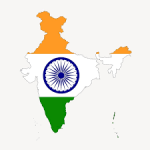India’s first-ever riverine dolphin estimation report has revealed 6,327 dolphins across 28 rivers in eight states.
Guwahati: India’s first-ever riverine dolphin estimation report has revealed 6,327 dolphins across 28 rivers in eight states. Assam has the fourth-highest number of riverine dolphins in the country, with 635 dolphins recorded in the survey.
Prime Minister Narendra Modi released the report during his visit to Gir National Park in Gujarat, where he chaired the 7th meeting of the National Board for Wildlife. “During the meeting, Prime Minister released the report of the first-ever riverine dolphin estimation conducted in the country, which estimated a total of 6,327 dolphins. This pioneering effort involved surveying 28 rivers across eight states, with 3150 man-days dedicated to covering over 8,500 kilometres,” the environment ministry said in a statement.
River dolphins are mostly found in Assam’s Brahmaputra, Subansiri, and Kulsi rivers. The dolphins in Subansiri River are facing a threat to their survival from the hydroelectric project constructed upstream of the river. Sand mining and other development activities are making Kulsi dolphins more vulnerable. In 2008, the riverine or Gangetic dolphin was declared the state aquatic animal. Since then, various organisations and the state government have been engaged in the conservation of this endangered species.
At one time, poachers hunted the river dolphins for their oil. India’s inaugural riverine dolphin population survey, conducted under Project Dolphin, covered 8,500 kilometres across the Ganga, Brahmaputra, and Indus river systems over two years. In India, Ganges river dolphins inhabit the Ganga-Brahmaputra-Meghna river system and its tributaries, while a small population of Indus river dolphins resides in the Indus River system. In the meeting, the National Board for Wildlife discussed dolphin and other wildlife conservation.
The Prime Minister also directed the Environment Ministry to gather traditional knowledge and manuscripts on forest and wildlife conservation for research and development. He also highlighted the role of advanced technologies, including AI, in wildlife conservation and advised further research on medicinal plants in forests, noting that plant-based medicine systems could play a crucial role in animal health management on a global scale. (Agencies)









